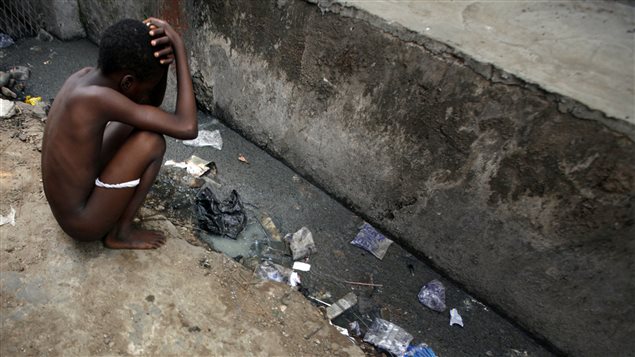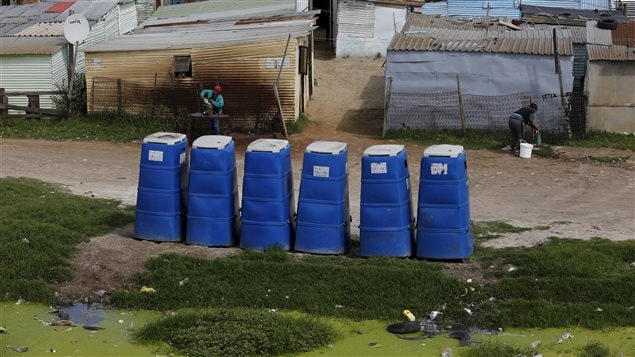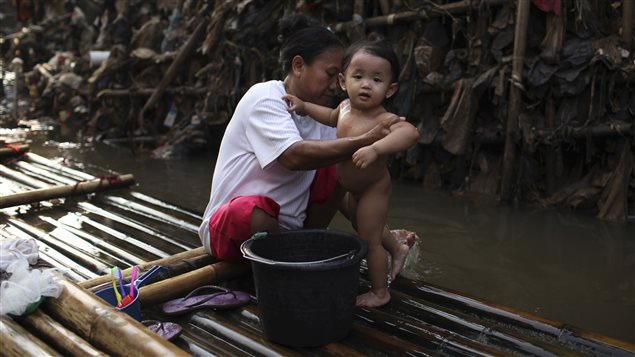Over 800 children under the age of five die every day because of lack of access to toilets and clean water, says UNICEF.
Millions of others are in danger of falling behind in their physical and mental development, because of the lack of most rudimentary sanitation and hygiene facilities, UNICEF said in a new report released on the World Toilet Day (Nov 19).
Meg French, Chief of International Programs and Public Affairs at UNICEF Canada, said some 2.4 billion people globally do not have toilets and 946 million – roughly one in eight of the world’s population – defecate in the open.
“It’s a situation that has far-reaching implications for the world’s most vulnerable children,” French said.
ListenThe lack of sanitation, particularly, defecating in the open increases the rates of diarrhea and the spread of intestinal parasites, French said.
“When we see high levels of diarrhea and intestinal parasites, we see high levels of malnutrition and undernutrition in children as well,” French said. “What we see with children under five is that there are about 1.7 billion cases of diarrhea every year, and for the kids in the most vulnerable populations, in the low income countries, they average about three episodes of diarrhea a year.”
Multiple episodes of diarrhoea permanently alter their gut, and prevent the absorption of essential nutrients, putting them at risk of stunting and even death, French said.
“So not only may you be eating less, because you have a diarrhea as a child, but also your body isn’t actually able to absorb the nutrients it normally would have from that food,” French said. “And it’s a bit of a vicious cycle because children who are malnourished are more susceptible to diarrhea when they are exposed to these germs.”
800 lives a day

What’s worse in many cases diarrhea is a very efficient killer.
Some 300,000 children under five years old die per year – over 800 every day – from diarrhoeal diseases linked to inadequate water, sanitation and hygiene, French said. Diarrhea accounts for nine per cent of the deaths of children under five years old each year.
“Not only can it cause death, but also for kids who do live through malnourishment and through incidents of diarrhea it can have a long-term impact on their health and development,” French said.
The UN estimates that 159 million children under five years old are stunted (short for their age) and another 50 million are wasted (low weight for age).
Malnutrition also leads to poor cognitive and developmental outcomes, and could affect children for the rest of their lives, French said.
“We also know that stunting could impact on the entire communities and generations because it has an impact on the economic and social development of the communities as well,” French said.
The poorest children in sub-Saharan Africa and South Asia are particularly at risk.
Community action

UNICEF works in over 100 countries on improving access to proper sanitation, improving hygiene processes and providing clean water, French said.
And one of the most successful programs is the so called Community Led Total Sanitation (CLTS) approach, in which the affected populations themselves devise local solutions to the problem of open defecation, she said.
“It’s not just about getting toilets to people, you also have to get them using the toilets,” French said. “And if you don’t understand the value and the importance of proper sanitation, you could say, ‘Why would I bother going in there when I can stay outside and it smells much better?’”
The behavioural change component is as important as creating the sanitation infrastructure. The CLTS approach puts the ownership of proper sanitation in the hands of communities, she said.
It starts with communities investigating where people are defecating, who is using toilets or not, what is the health status of their children, and developing a solid understanding of the connection between good sanitation and good health, French said.
“When you have an almost community movement to improve sanitation,” French said, “what we’ve seen is we have whole communities who just collectively decide that this is the end, there will be no more open defecation and they start changing their practices, building toilets, keeping human faeces away from where people live and they see the impact on the health of their children.”







For reasons beyond our control, and for an undetermined period of time, our comment section is now closed. However, our social networks remain open to your contributions.